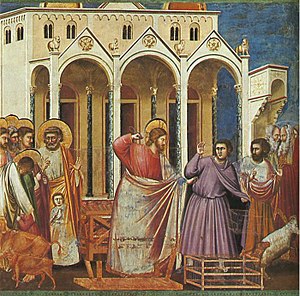"it would seem that he is echoing a Platonic insight. Our aim in the following is to understand what it is about the nature, the inner logic, of money that inclines it to usurp the divine throne, to see precisely how the question concerning the ultimate end of action serves to distinguish the philosopher from the sophist, and then to consider what a healthy love of money would be.... Money has the whole of its truth in being a symbol of the soul’s adherence to the good. It is meant, above all, to be a ‘reminder’ to those who are wealthy in a true sense.... Socrates does not think of money primarily as something to be stored, that is, as a destination of the soul’s love, but rather as something ever available to be spent, that is, always a means that brings to realization true, concrete goods. And so he does not call gold itself wealth. Instead, it is a token that enables him to recollect the true wealth that is wisdom, the soul’s free and rightful order under the sun, the light of the good."READ THE ARTICLE HERE.
Wednesday, 18 July 2012
What is money?
The question is raised and discussed in David C. Schindler's brilliant article, "Why Socrates Didn't Charge: Plato and the Metaphysics of Money" (Communio, Fall 2009), available on our Economy website. "When St. Paul says that the love of money is the root of all evil," Schindler writes,
Subscribe to:
Post Comments (Atom)

No comments:
Post a Comment